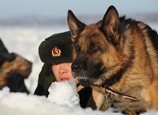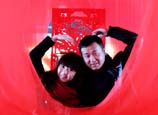
High inventories caused by quick expansion, product homogeneity, price surges and sliding purchasing power are expected to pressure international and local sports goods brands this winter.
That's on top of a dismal first half for the industry this year.
Nike Inc's sales in China - including footwear, apparel and equipment - declined 11 percent to $577 million, according to the company's second-quarter fiscal report.
Nike's reported future orders, scheduled for delivery from December through April, dropped by 6 percent. In comparison, Nike's revenue has grown 11 percent in other emerging markets to $1.05 billion.
Domestic brands are also struggling due to the weak market demand, a reminder to investors to dilute their investments.
Sequoia Capital, a venture capital fund that has invested in Google and Cisco, has reduced its stake in one of the leading Chinese sports apparel companies, Peak Sport Co Ltd, from 6.22 percent to 3.65 percent.
In 2009, Peak received $60 million from Sequoia Capital China, CCB International and Legend Capital. Analysts said the reduction of Sequoia Capital China's stake in Peak is a result of the depressed sports goods market and the company's sliding performance.
In the first half of 2012, Peak's net profit dropped 43.3 percent to 240 million yuan ($38.5 million). The company has closed 747 of its smaller and less profitable shops since the end of 2011.
Now with 7,059 shops, Peak is a leader among local sports brands, and its network is mainly developed in second- and third-tier cities.















 Many parts of Jiangsu see snowfall
Many parts of Jiangsu see snowfall


![]()
